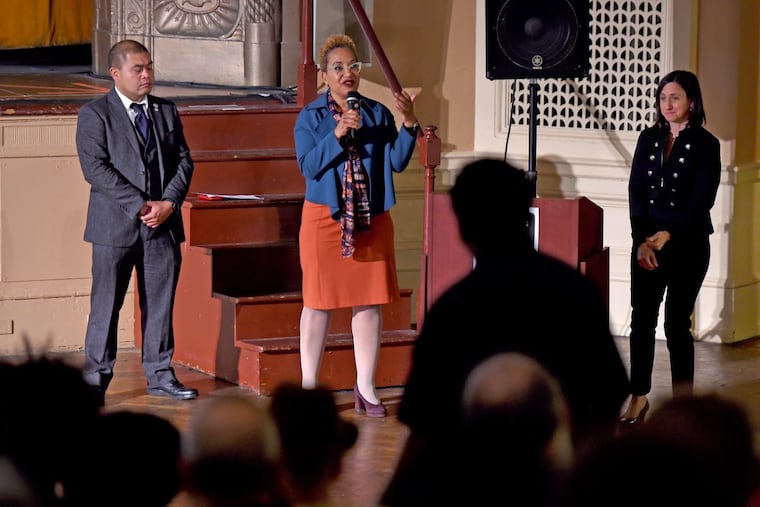Tackling racism in the Gayborhood: City updates its progress
Racism and discrimination sparked outcry last year. City officials went over what steps they have taken since then.

When workers at bars in Philadelphia's Gayborhood underwent anti-discrimination training this year, following complaints of racism and unfair treatment of patrons, they had a variety of reactions.
People of color nodded in approval and said they appreciated the training, said Rue Landau, executive director of the Philadelphia Commission on Human Relations, which mandated the training. Many white staffers did, too. But some white staffers were not as appreciative, Landau said.
"You could see the resistance in some of them," she said.
Landau briefly described the reactions Thursday when members of the Human Relations Commission and Philadelphia Office of LGBT Affairs gathered at the Gershman Y in Center City to discuss the steps taken since complaints of racism embroiled the Gayborhood last year.
Twelve bars — the Bike Stop, Boxers, Franky Bradley's, ICandy, Knock, Stir Lounge, Tabu Lounge & Bar, Tavern on Camac, Toasted Walnut, U Bar, Voyeur, and Woody's — completed training on topics such as preconceived notions, disparate treatment, and the city's fair practices ordinance, which prohibits discrimination on the basis of race, religion, and sexual orientation.
The commission also sent people of different races and genders to the bars to see how staff treated them. There were no instances of discrimination, Landau said.
For the staffers who didn't exactly welcome anti-discrimination training, Landau had a simple message: "Their job is to follow the law."
The owners of Tabu and Knock attended Thursday's meeting, but others did not — which became apparent when bar owners present were asked to raise their hands.
"It's a question of commitment to the community and playing a role: Should we all be here? Should more people be here? Sure," Tabu owner Jeff Sotland said when asked after the meeting about the bar owners, one of whom he said was recuperating from surgery. "Sometimes you have to set your priorities, and ours was to have representation at this meeting."
Racism in the Gayborhood — a problem that goes back decades, the city has acknowledged — sparked renewed outcry last year when a video emerged on YouTube of ICandy owner Darryl DePiano saying the N-word. Other Gayborhood bars had problems, too: Black patrons reported having to show multiple IDs to gain entry and bouncers turning them away for wearing sweatpants or Timberland boots.
In October 2016, a month after the ICandy video emerged, hundreds of people attended a public forum to discuss discrimination in the Gayborhood. The Human Relations Commission, which called the meeting, said in January that bars would have to undergo bias training.
(Read a transcript of the 2016 meeting here).
In February, the city fired its director of LGBT affairs, Helen L. "Nellie" Fitzpatrick, amid complaints she had responded too slowly to discrimination complaints in the Gayborhood. Amber Hikes replaced her.
Other efforts to address racism in the Gayborhood have stoked disagreement. Several nonprofits teamed up this summer to welcome people of color back to ICandy, dismaying some who had called for the bar to close. An online petition also urged rap artist Milan Christopher and transgender entertainer Ts Madison to boycott a September event at the bar. They performed.
In June, Mayor Kenney signed a bill allowing the commission to temporarily close businesses if they repeatedly violate the city's fair-practices ordinance. The city also added black and brown stripes to its gay pride flag to represent people of color.